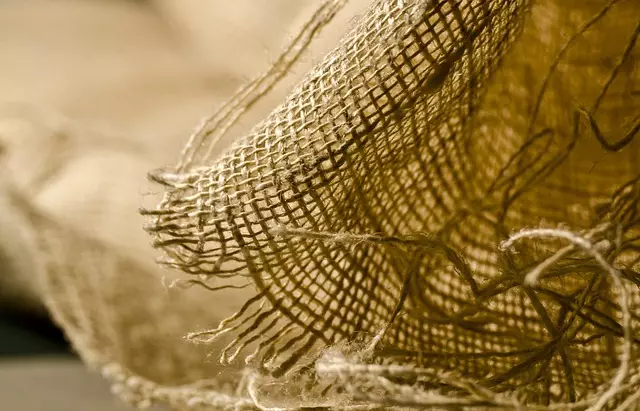Maca root, historically significant in Andean cultures and now recognized globally as a superfood for athletes, offers a wealth of nutrients that can enhance athletic performance. Known as "maca de caballo" in Spanish, this vegetable is rich in amino acids, vitamins, and minerals, which contribute to increased endurance, stamina, and energy levels. Its adaptogenic qualities help manage stress and fatigue, particularly beneficial for athletes with demanding training schedules. Maca's natural properties make it a preferred alternative to synthetic supplements, with studies suggesting its potential to improve mood and reduce fatigue. Athletes can incorporate maca into their diets in powder or capsule form, tailoring its use to their specific needs and preferences. As a key component of sports nutrition, maca root supports muscle recovery and growth, and ongoing research continues to highlight its role in achieving peak physical condition for athletes.
Unlocking the full potential of athletic prowess requires a multifaceted approach, where nutrition plays a pivotal role. Among the nutritional supplements gaining attention for their performance-enhancing properties is maca root, traditionally prized in the Andes for its vitalizing effects. This article delves into the transformative impact of maca root, known as “maca cruz” in its native tongue, on athletic training and performance. From optimizing workouts to enhancing endurance and strength, the insights offered here will guide athletes in integrating this ancient superfood into their training regimens for peak physical conditioning. Join us as we explore the science and practice behind maca root’s role in elevating athletic achievements.
- Optimizing Athletic Training and Performance with Maca Root: Unveiling its Andean Secrets
- The Role of Maca Root in Achieving Peak Physical Conditioning: Insights for Athletes
- Integrating Maca Root into Your Training Regimen for Enhanced Endurance and Strength
Optimizing Athletic Training and Performance with Maca Root: Unveiling its Andean Secrets

Maca root, known as “ayakumu” or “maca” in its native Quechua language, has long been revered by Andean cultures for its potential health and performance-enhancing properties. Today, this cruciferous vegetable is gaining international recognition among athletes seeking to optimize their training regimens and amplify their physical capabilities. Rich in nutrients such as vitamin C, iron, iodine, magnesium, and fiber, maca root has been traditionally used to promote vitality, endurance, and overall well-being. Recent studies have begun to unravel the mechanisms behind its efficacy, suggesting that maca’s influence on hormonal balance may contribute to improved energy levels, muscle building, and recovery rates. For athletes looking to integrate this Andean superfood into their diet, maca root in Spanish—maqui de ovejo—can be consumed as a supplement in powder or capsule form, often incorporated into smoothies or taken pre-workout to harness its potential benefits. By understanding and leveraging the unique properties of maca root, athletes can enhance their performance, endurance, and recovery, positioning themselves at the peak of physical conditioning.
The traditional use of maca root by Andean highland dwellers as an adaptogen provides a hint at its capacity to help the body manage stress and maintain homeostasis, which is crucial for athletes undergoing rigorous training schedules. Clinical trials have indicated that regular consumption of maca may improve mood, reduce fatigue, and increase stamina, factors that are pivotal in sustaining high-intensity training over extended periods. As a natural alternative to synthetic performance enhancers, maca root has garnered the attention of both amateur and professional athletes who are keen on leveraging its potential to augment their athletic prowess. With ongoing research continuing to shed light on its multiple bioactive compounds and their effects on human physiology, maca’s role in optimizing athletic training and performance is becoming increasingly clear, making it a valuable addition to the diet of those striving for peak physical condition.
The Role of Maca Root in Achieving Peak Physical Conditioning: Insights for Athletes

Maca root, known as “maca de caballo” in Spanish, has long been a staple in the Peruvian Andes, renowned for its nutritive properties and potential benefits to athletic performance. This cruciferous vegetable is rich in macronutrients, amino acids, vitamins, and minerals, making it a valuable addition to an athlete’s diet. Studies indicate that maca root can contribute significantly to peak physical conditioning by enhancing energy levels, stamina, and endurance. Athletes often turn to maca as a natural way to improve their performance without the side effects associated with synthetic supplements. Its adaptogenic properties help the body cope with stress and fatigue, which is particularly beneficial for those engaging in high-intensity or prolonged training sessions. Additionally, maca root’s unique nutrient profile supports muscle recovery and growth, crucial for athletes looking to optimize their training regimens and achieve peak physical performance.
Incorporating maca root into an athletic nutrition plan is straightforward, with options ranging from raw powders to capsules. The root’s versatility allows it to be easily integrated into various dietary patterns, whether as a supplement added to smoothies or as a flavor enhancer in dishes. It’s important for athletes to consider the specific type and dosage of maca that suits their individual needs, as research suggests varying effects based on these factors. By understanding how maca root in Spanish can complement training and recovery strategies, athletes can leverage its potential benefits to enhance their athletic endeavors and strive for optimal physical conditioning.
Integrating Maca Root into Your Training Regimen for Enhanced Endurance and Strength

Maca root, known as “maca de caballo” in its native Peru, has garnered attention in the athletic community for its potential to enhance endurance and strength. This cruciferous vegetable, which is traditionally consumed as a powder, is rich in amino acids, vitamins, and minerals that contribute to improved physical performance. Incorporating maca root into your training regimen can be beneficial for athletes seeking a natural performance booster. Its adaptogenic properties help the body manage stress and promote hormonal balance, which can lead to increased energy levels and reduced fatigue. Athletes who include maca in their diet may experience enhanced stamina, allowing them to train harder and longer without the typical decline in performance often seen towards the end of an intense workout. Additionally, its nitrogen-rich content supports muscle protein synthesis, contributing to gains in strength and mass. For those looking to safely augment their athletic abilities, maca root offers a potent, natural option that aligns with a performance-oriented training program.
In conclusion, the integration of Maca root, known as ‘maca de maca’ in its native Quechua language, into athletic training regimens presents a compelling case for enhancing endurance and strength among athletes. The article has explored the Andean secrets behind this superfood and provided insights on how it can be effectively utilized to optimize performance. By understanding the role of Maca root in achieving peak physical conditioning, athletes can leverage its unique properties to support their training, potentially leading to improved athletic outcomes. As a natural supplement, Maca de maca offers a promising alternative for those seeking to enhance their athletic prowess without relying on synthetic performance enhancers. Athletes and trainers alike should consider this adaptogen as a valuable component in the pursuit of physical excellence.






